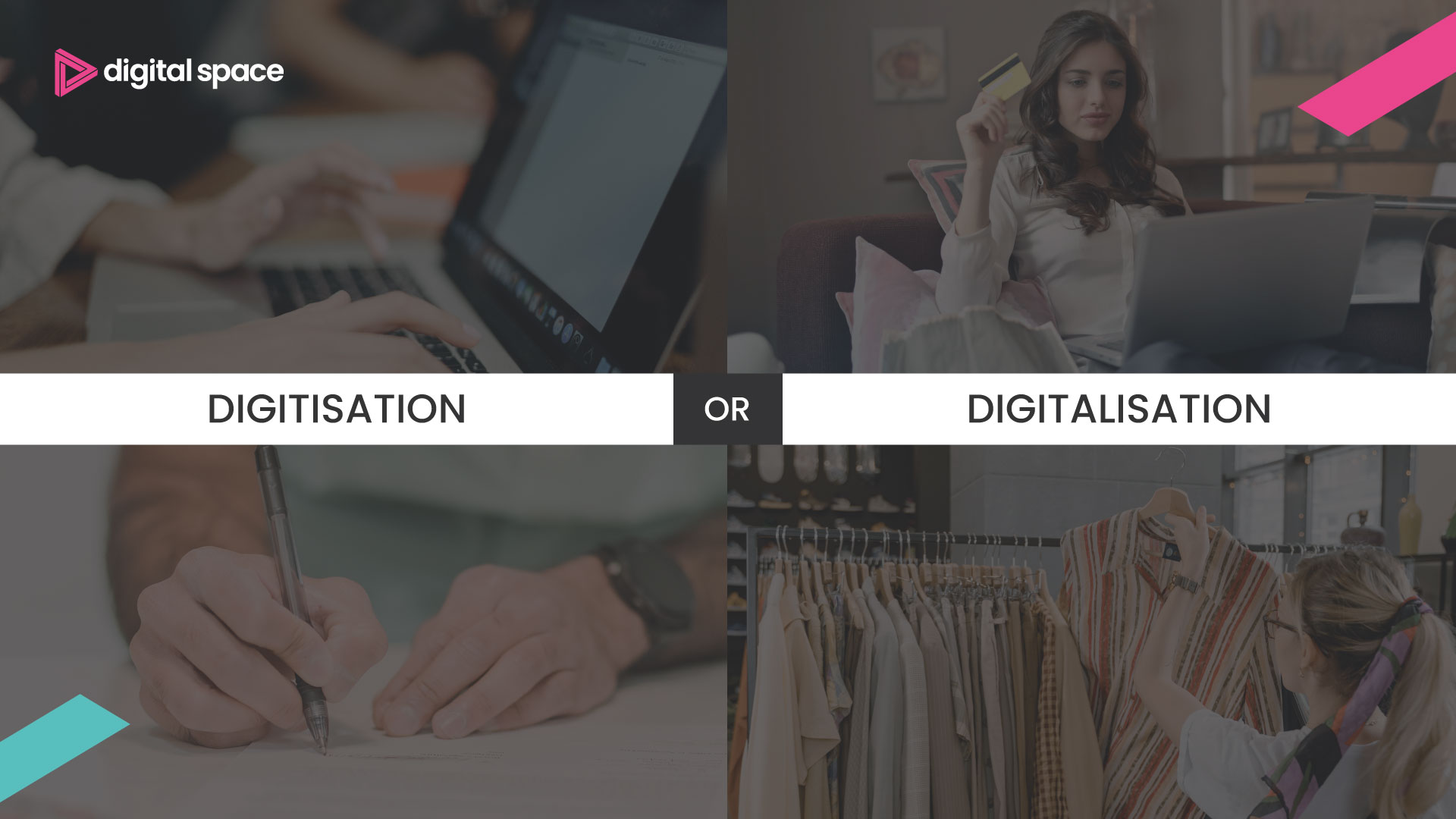Digitisation or Digitalisation? We settle the difference once and for all.
In today’s evolving technology world, understanding the difference between Digitisation or Digitalisation is essential to developing your business’ digital strategy.
Before the digital age, society operated with functional and material processes. A newspaper was your primary source of information. Now of course, you can access the news of the world at the click of a button, thanks to the digital revolution and its continuous evolving network. We can call the process of turning the analogue into the digital: Digitisation.
1. Digitisation is the conversion of changing the analogue to the digital.
Simply put, Digitisation means to convert something into digital format. Changing bank statements, for example, would traditionally be sent via mail but is now available via an app or digital format. Easy. Here’s a few more:
- Changing an article from a hand-written document to a digital copy
- Storing NHS patient records on private computers instead of in material folders
- Delivering employee payslips via an HR online portal rather than in print format
Now that we are familiar with digitisation, what is digitalisation? The terms have been confused with one another countless times, so let’s take a closer look.
2. Digitalisation is how this new digital world will impact people and work
Digitalisation means to convert business processes over to use digital technologies, for example, meetings held remotely by video conference. Digitalisation has allowed us to bypass the logistics of getting everyone together in a meeting room, we can now talk together virtually while being in separate places. More examples are:
- Self-service checkouts instead of a working cashier
- Retail customers who shop online via ecommerce websites
- Using cloud computing to store, distribute and analyse information and documents
So how does this apply to your business?
There are countless examples of organisations that are being left behind because they are choosing not to evolve in line with new technologies. This remorseless and ever-changing sphere requires an IT solution that adapts and succeeds with change and those that do not adapt risk losing competitive advantage and even customers. Because digital is not going anywhere soon.
The challenge of digitisation is less in the reception of digital data, and more in knowing what to do with the data and how to respond to it. This is where digitalisation comes in. For industrial systems, digitalisation takes the form of connecting, processing, and reacting to data. A relatively recent example of digitalisation within the finance sector is the uprising of blockchain, underpinning digital currencies and automatically executed smart contracts. This idea of automation is a key component of digitalisation.
Affecting the Mid-Market
Mid-sized businesses are affected by both digitisation and digitalisation. They are big enough to have huge quantities of digital data of their own, not to mention the data available from customer interactions, social media, and other sources. Their systems, especially those put in place before growth happened, may not be expandable to cope with ever increasing amounts of data now coming their way. It’s imperative to have an IT solution that can adapt and succeed within an ever-evolving professional sphere.
Likewise, plans for business expansion can be hampered by the limits of IT systems and networks bought previously for more modest needs. Small business solutions do not scale well to meet mid-sized needs. They lack manageability, flexibility in security, and possibilities to bring together data from different sources for analysis and business insights.
Key Considerations
Functionality, affordability, and adaptability are key considerations for mid-sized companies. These businesses must have future-proofed solutions that are also simple enough to manage, and secure enough to protect customer, employee and company data.
Digital Space is committed to helping mid-sized and enterprise businesses navigate the evolving nature of digital transformation. If you wish to speak to us about your technology requirements, please click here.







